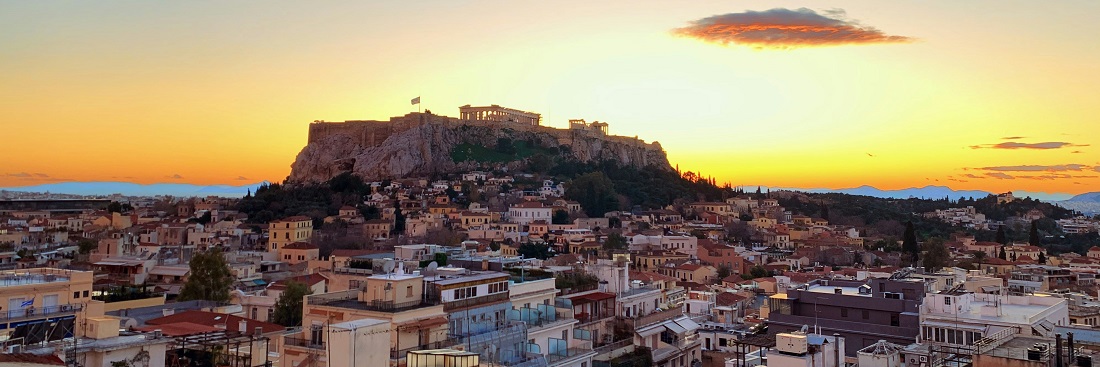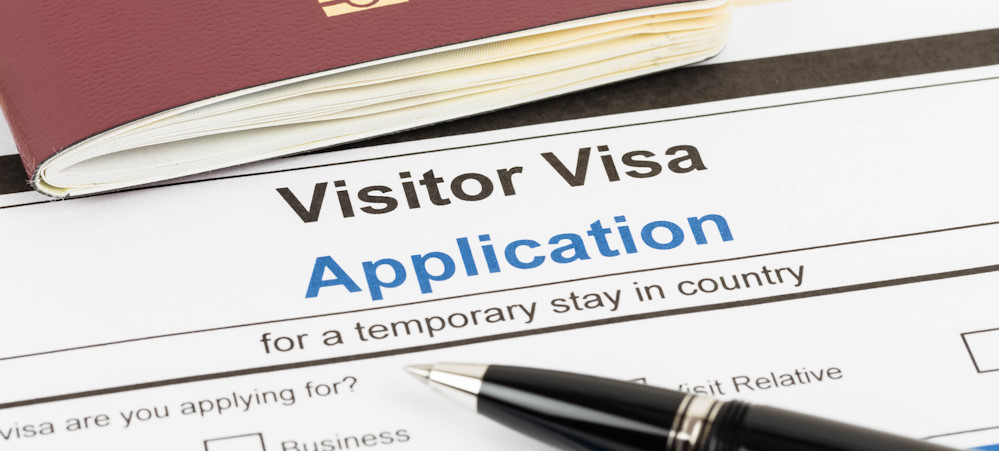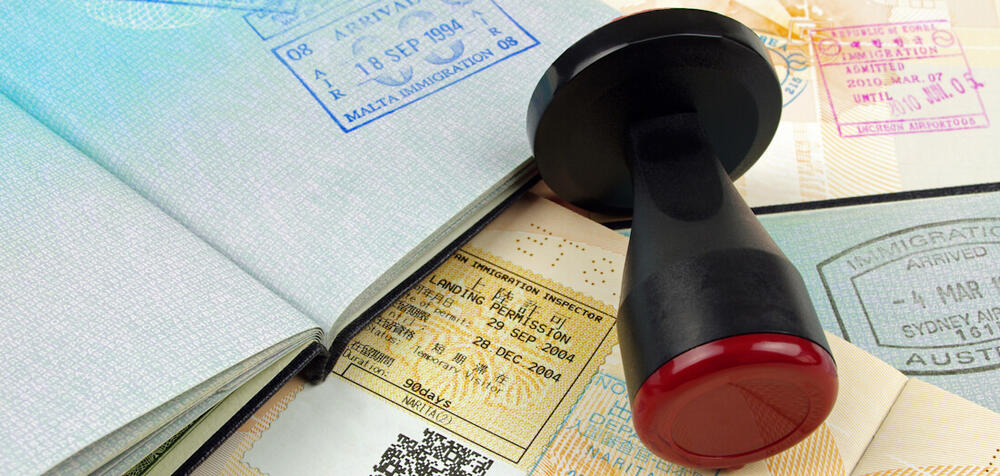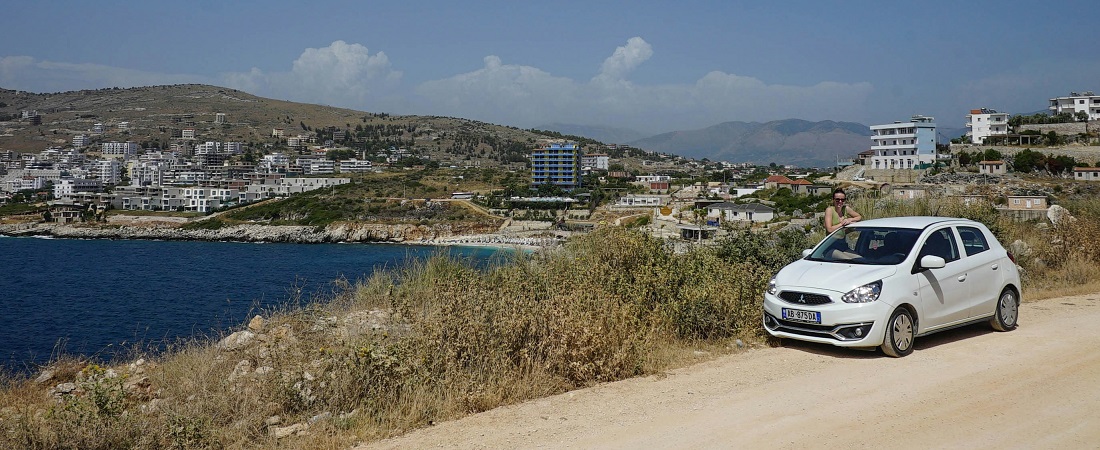Greece is an incredibly beautiful place to live, with plenty to explore and enjoy, from ancient historical sites to black sand beaches. The quality of life is high, and if you are earning above the average salary, you can live a relatively lavish life in this Mediterranean country.
That said, there are also negative aspects to life in Greece that you should be aware of before taking the plunge. We’ve put together a list of pros and cons for moving to Greece to help expats prepare for what to expect when arriving in their new home.
Accommodation in Greece

+ PRO: There are plenty of rental options available
Depending on where in the country you decide to live, the range of choices may differ. While villas and apartment blocks are common in the cities, stone farmhouses are popular in the countryside.
Freestanding and semi-detached houses and cottages are also found throughout the country. With so many options available, you shouldn’t struggle to find accommodation that will suit your budget.
- CON: Accommodation varies in quality
You should visit the property and consider the condition and age of the structure before committing to it. Especially when buying, unexpected renovation and restoration costs could ensue if you unknowingly buy a run-down property.
Finding Accommodation in Greece
Cost of living in Greece
+ PRO: Greece is generally affordable
Although costs vary throughout the country, with the mainland typically being cheaper than the islands, Greece has a relatively low cost of living. It is more affordable overall than its Western European neighbours and the US. Transport, fuel and basic goods are all reasonably priced.
- CON: Tourist areas are expensive
While the cost of living in Greece may be relatively low, prices are hiked up in the main tourist areas to take advantage of the seasonal visitors. Choosing a lesser-known island or city to live in will certainly yield cheaper prices for almost everything, from accommodation to food.
Cost of Living in Greece
Transport and Driving in Greece
Working in Greece
- CON: It can be hard to find a job
Expats without a job in hand may struggle to find employment in Greece. While Greece’s unemployment rate may be declining, it is still rather high. When hiring an expat, companies usually also prefer to hire an EU expat, as the paperwork involved in hiring non-EU expats is immense. While speaking Greek can assist expats in looking for a job, it will not guarantee employment.
Lifestyle in Greece

+ PRO: There is a relaxed pace of life
Greek society is laid back, and the pace of life is slow and relaxed. Locals tend not to rush through their daily routines, and although they do work hard, they enjoy the simple pleasures in life. It may take some time to adjust if you are used to a fast-paced environment, especially in the workplace.
+ PRO: The locals are friendly
You will quickly discover that locals are incredibly welcoming and hospitable. Greek people value relationships, love food and are proud of their culture and traditions. Any attempts to speak Greek will be greatly appreciated.
+ PRO: The weather in Greece is lovely
Expats in Greece will love the Mediterranean climate this country offers its residents. Although the year-round sunshine is punctuated by rain occasionally, there are a few wet days. Winters are mild and bright, and a cool ocean breeze accompanies the hot summer weather.
+ PRO: Greece has delicious food
A point of pride for the locals, Greece is a food lover’s dream. There is a vast variety of dishes in Greece, all consisting of fresh local produce and tasty meats or seafood. It is also known for being incredibly healthy, which is thought to be the reason Greek people live so long.
+ PRO: It is a relatively safe country
Crime rates are low in Greece, and most people feel extremely safe walking around Greece day or night. General precautions should still be taken, but expats feel safe in general.
- CON: Expats will have to navigate the language barrier
Although you don’t necessarily need to speak Greek to get on, if you’re intent on staying in Greece, you would do well to learn the language. Not only does it create more possibilities for employment, but it is also the best way to integrate into Greek society.
That said, it is a tricky language to learn. There are differences between spoken and written Greek, as well as between regional idioms. Greek also uses inflexions, where the meanings of words change depending on the vocal tone. As a result, expats who are in the beginning stages of learning Greek can expect some confusing exchanges.
Local Culture in Greece
Safety in Greece
Climate Charts for Greece
Healthcare in Greece
- CON: The healthcare system is plagued by bureaucracy
Unfortunately, there is a culture of corruption and bureaucracy in the Greek public healthcare sector that significantly lowers the quality of care. Mismanagement and lack of funding also contribute to this. The Greek government has recently put several measures in place to try to streamline the system and fight corruption.
+ PRO: Healthcare is generally good
Greek hospitals and healthcare professionals generally offer a high standard of care. While private facilities are considered superior to public ones, both have well-trained doctors and nurses, many of whom speak English.
























